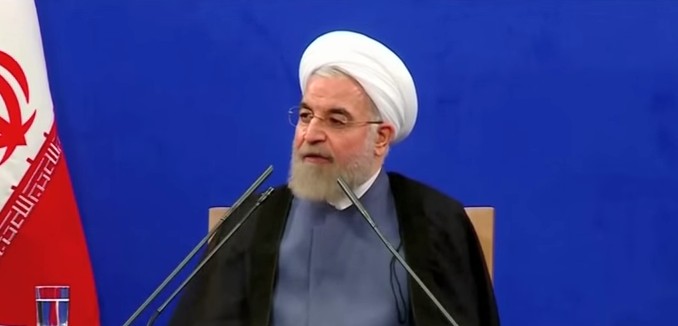Iranian President Hassan Rouhani told his parliament not to approve the nuclear deal signed by the P5+1 nations and Iran, known as the Joint Comprehensive Plan of Action (JCPOA), because legislative approval would “create an obligation” for the Islamic Republic and “place an unnecessary legal restriction on the Iranian people,” the Associated Press reported yesterday.
Rouhani told a news conference that the deal was a political understanding reached with the five permanent members of the U.N. Security Council and Germany, not a pact requiring parliamentary approval. The deal also says Iran would implement the terms voluntarily, he said. …
“If the Joint Comprehensive Plan of Action is sent to (and passed by) parliament, it will create an obligation for the government . it will mean the president, who has not signed it so far, will have to sign it,” Rouhani said. “Why should we place an unnecessary legal restriction on the Iranian people?” …
The president said a parliamentary vote would benefit the U.S. and its allies, not Iran.
Rouhani also said that the Supreme National Security Council, which is the country’s highest decision-making body on matters of national security, is almost done “analyzing” the JCPOA.
At the same press conference, Rouhani doubled down on his boast last week that Iran “will not ask for permission or abide by any resolution” limiting its development and acquisition of weapons, saying that, “[w]ith regards to our defensive capability, we did not and will not receive any limitations” from the JCPOA.
In a meeting last week with British Foreign Secretary Philip Hammond, Rouhani accused the United States of damaging “confidence-building” efforts.
[Photo: wochit news / YouTube ]




